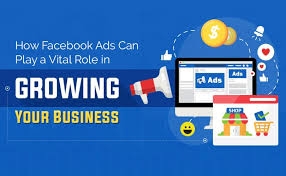In the ever-evolving landscape of digital marketing, Facebook Ads have emerged as a pivotal tool for businesses aiming to maximize their reach and engagement. With over 2.8 billion monthly active users, Facebook provides an unparalleled platform for advertisers to connect with a diverse and global audience. This article delves into the intricacies of Facebook Ads, offering insights into how businesses can leverage this powerful tool to drive growth and achieve their marketing goals.

Understanding Facebook Ads
Facebook Ads are paid messages from businesses that are delivered to Facebook users based on their interests, demographics, and behaviors. These ads can appear in various formats, including images, videos, carousel ads, and more. The primary goal of Facebook Ads is to capture the attention of users and encourage them to take specific actions, such as visiting a website, making a purchase, or engaging with content.
Benefits of Facebook Ads
-
Targeted Advertising: One of the most significant advantages of Facebook Ads is their ability to target specific audiences. Advertisers can create highly detailed audience segments based on factors like age, location, interests, and behaviors. This precision targeting ensures that ads are shown to users who are most likely to be interested in the product or service being advertised.
-
Cost-Effective Marketing: Facebook Ads offer a range of budgeting options, making them accessible to businesses of all sizes. Advertisers can set daily or lifetime budgets, ensuring they only spend what they can afford. Additionally, Facebook's ad auction system helps optimize costs by prioritizing ads with the highest relevance scores.
-
Enhanced Engagement: Facebook Ads are designed to be interactive and engaging. Features like video ads, carousel ads, and lead generation forms encourage users to interact with the ad content, resulting in higher engagement rates. Moreover, the platform's algorithms prioritize ads that receive positive interactions, further enhancing their visibility.
-
Comprehensive Analytics: Facebook Ads Manager provides detailed analytics and reporting tools that allow advertisers to track the performance of their campaigns. Metrics such as impressions, click-through rates, and conversion rates offer valuable insights into what is working and what needs improvement, enabling businesses to refine their strategies in real-time.
Creating Effective Facebook Ads
To maximize the effectiveness of Facebook Ads, businesses should consider the following best practices:
-
Define Clear Objectives: Before launching a campaign, it's crucial to define clear objectives. Whether the goal is to drive website traffic, increase brand awareness, or boost sales, having a clear objective will guide the creation and optimization of ad content.
-
Craft Compelling Visuals and Copy: High-quality visuals and persuasive copy are essential for capturing the attention of users. Ads should be visually appealing and convey a clear message. Utilizing strong calls-to-action (CTAs) can also prompt users to take the desired action.
-
Utilize A/B Testing: A/B testing involves creating multiple versions of an ad to determine which one performs best. By testing different images, headlines, and CTAs, advertisers can identify the most effective elements and optimize their campaigns accordingly.
-
Monitor and Optimize: Continuous monitoring and optimization are key to successful Facebook advertising. Regularly reviewing performance metrics and making necessary adjustments can help improve the overall effectiveness of the campaign.
Conclusion
Facebook Ads have revolutionized the way businesses approach digital marketing. With their robust targeting capabilities, cost-effective options, and comprehensive analytics, Facebook Ads offer a powerful platform for reaching and engaging with potential customers. By defining clear objectives, crafting compelling content, and continuously optimizing their campaigns, businesses can harness the full potential of Facebook Ads to drive growth and achieve their marketing goals.


